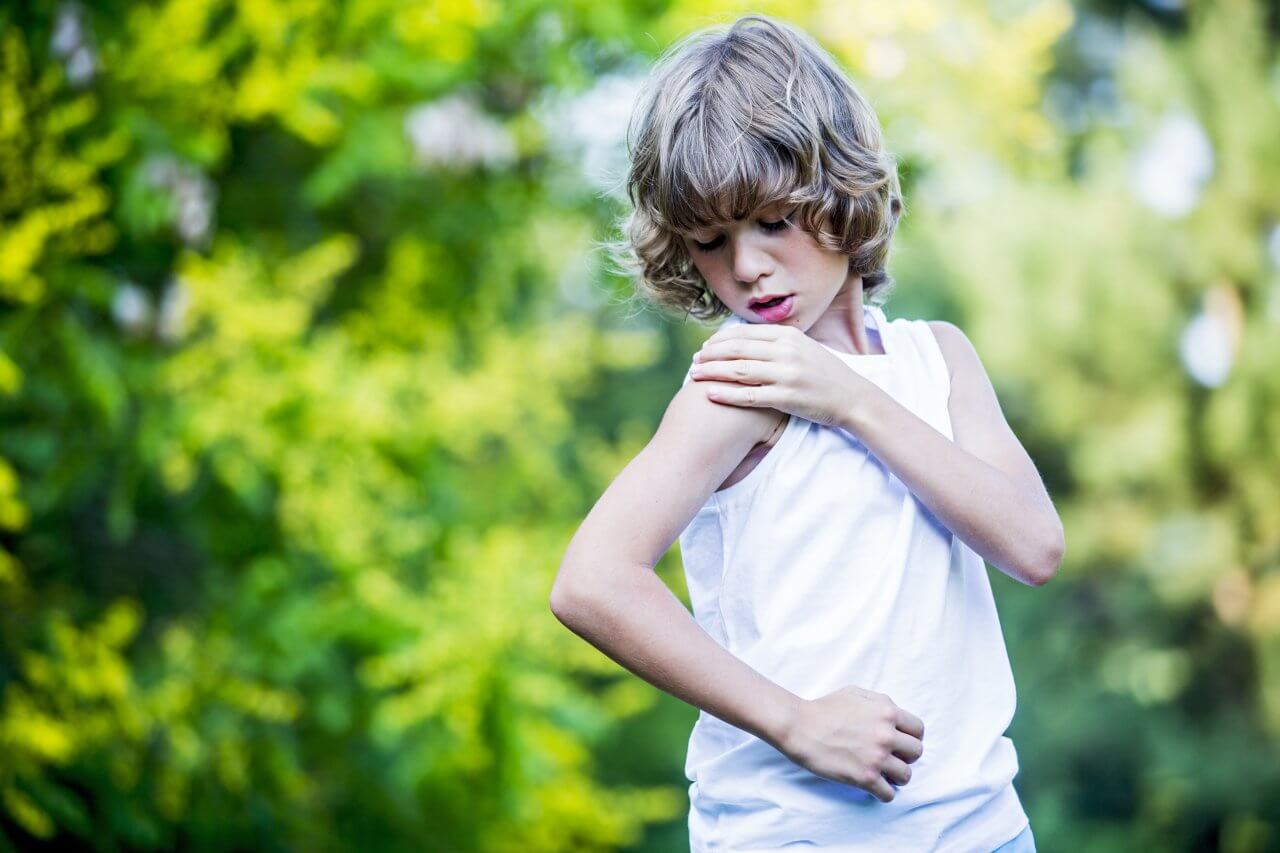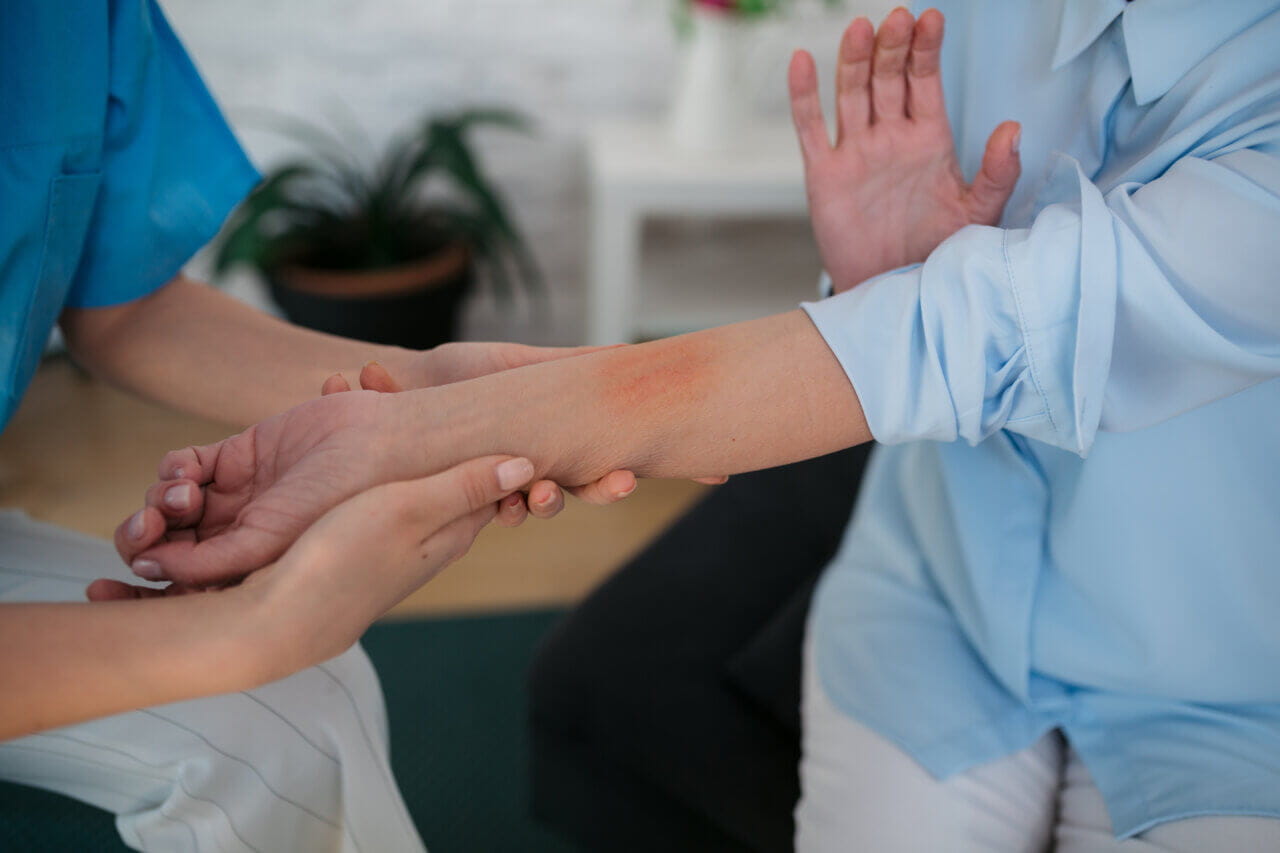What You Need to Know About Chigger Bites

What are chiggers? They’re tiny larvae of bugs called harvest mites, closely related to ticks. Chiggers get onto your skin and clothing as you move through the areas they prefer, such as tall grasses, weeds, and wooded areas. They’re especially prevalent near water.
Chiggers feed on the skin, causing an itchy rash. They’re relatively harmless in the U.S., although they may carry typhus in Asia. Chiggers don’t burrow into the skin like ticks, so they’re easy to remove. But the itching from chigger bites can be very uncomfortable, so it’s best to avoid being affected by these nearly invisible bugs if possible.
What Does a Chigger Rash Look Like?
The look of a chigger rash varies from person to person. It typically appears as red spots, but they can be flat or raised. The spots may be tiny bumps or look like blisters.
Chigger rashes most often develop on the ankles, behind the knees, at waist level near the beltline, and in the armpits. The itching is intense for one to two days and can last several days.
If you develop a chigger rash, you must monitor it as it progresses. Chigger bites aren’t serious, but they can become infected, especially if you scratch them. Crusting or pus around a bite may indicate the presence of the contagious bacterial skin infection impetigo. Bites can also be the site where another bacterial infection called cellulitis develops.
How to Treat Chigger Bites
Although you can’t see chiggers, if you become aware that you have them on your skin or clothing, you can simply brush them away. You should shower to ensure they’re all gone and wash your clothes in hot, soapy water.
Note that if the chiggers have started biting, taking a shower won’t soothe the itch. To reduce the irritation, you can:
- Apply cortisone cream, calamine lotion, petroleum jelly, baby oil, or cold cream
- Apply a topical treatment called Chigarid, which contains camphor, menthol, and phenol
- Hold a cold compress or ice pack against the skin in the affected area
- Take a bath with colloidal oatmeal
- Take allergy medication as directed
Be aware that some lotions contain antihistamines. You should never take oral histamine and apply topical antihistamines simultaneously. Use one or the other.
How to Prevent Chigger Bites
To prevent chigger bites, you must keep them away from your skin. That means covering as much of it as possible with the thickest fabrics you can tolerate, given the weather conditions. Long-sleeved shirts, long pants tucked into shoes or boots, and a hat can be helpful.
You can also apply a bug spray containing DEET to your clothing, starting with your shoes and going up from there. You should reapply every two or three hours.
Chiggers like taller vegetation, so it’s best to keep your yard and other outdoor areas trimmed at home.
Contact Your Baptist Health Doctor About Infected Chigger Bites
If you think you may have a skin infection from chigger bites (or any cause), contact your doctor. You can also visit an urgent care center if the rash or infection is concerning.



